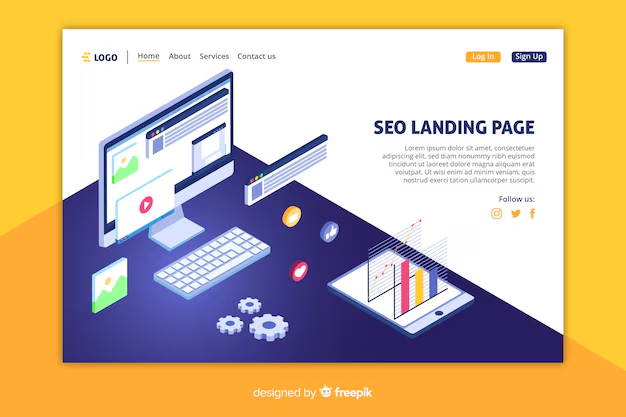Building a custom theme from scratch can be time-consuming, but with the right framework, the process becomes faster, more efficient, and more flexible. Whether you're a seasoned developer or a beginner looking to create themes for WordPress or other CMS platforms, using a framework can simplify your workflow and help you build robust, high-quality themes. In this guide, we’ll explore the best frameworks for theme development in 2024, each offering unique features and capabilities to suit various needs.
1. Bootstrap
Bootstrap remains one of the most popular frameworks for theme development. It is a front-end framework that helps developers create responsive and mobile-first websites quickly. Bootstrap comes with a range of pre-built components, grid systems, and utility classes, making it ideal for creating themes with consistent design.
- Key Features: Responsive grid system, extensive component library, customizable Sass variables.
- Why Use It: Bootstrap’s popularity means there is a large community and plenty of resources available for support. It’s perfect for developers who want to create themes that look great across all devices.
2. Foundation by ZURB
Foundation is another front-end framework that is often compared to Bootstrap. It offers a slightly more flexible and customizable approach, allowing developers to fine-tune their designs. Foundation is known for its mobile-first philosophy, making it ideal for creating highly responsive themes.
- Key Features: Advanced grid system, mobile-first design, customizable Sass settings.
- Why Use It: Foundation is ideal for developers who need more control over their theme's layout and design, as it offers a more granular approach compared to other frameworks.
3. Genesis Framework (for WordPress)
The Genesis Framework is one of the best-known frameworks for developing WordPress themes. It provides a solid foundation for building secure, SEO-friendly, and lightweight themes. Genesis is highly customizable and comes with a range of hooks and filters, making it easy for developers to create child themes.
- Key Features: SEO-optimized, lightweight design, easy-to-use theme options, developer-friendly hooks.
- Why Use It: Genesis is perfect for WordPress theme developers who want a fast, secure, and SEO-friendly base for their projects. Its strong community support and detailed documentation make it a great choice for both beginners and experts.
4. Tailwind CSS
Tailwind CSS has gained immense popularity among developers in recent years. Unlike traditional frameworks that come with predefined components, Tailwind allows you to build themes by applying utility classes directly in your markup. This approach offers more design flexibility and results in lightweight, custom themes.
- Key Features: Utility-first CSS, customizable design system, responsive design capabilities.
- Why Use It: Tailwind CSS is ideal for developers who want complete control over their theme’s design without being restricted by predefined styles. Its utility-first approach makes it perfect for creating unique and visually stunning themes.
5. Underscores (_s) (for WordPress)
Underscores (commonly referred to as _s) is a popular starter theme for WordPress that provides a basic template for building custom themes. It’s lightweight and includes the essential files you need to start developing, such as template tags and theme structure. Underscores is not a framework in the traditional sense, but it's a great starting point for custom WordPress theme development.
- Key Features: Minimalist codebase, ready-to-use theme structure, semantic HTML5 markup.
- Why Use It: Underscores is perfect for WordPress developers who want to build custom themes from the ground up without any unnecessary bloat. It’s a clean slate that allows you to add only the features you need.
6. Vue.js
Vue.js is a progressive JavaScript framework that has become increasingly popular for theme development, especially for headless CMS solutions. It allows developers to build dynamic, component-based themes that are highly interactive. When paired with a CMS like WordPress or Strapi, Vue.js can create fast, single-page applications (SPAs) for a seamless user experience.
- Key Features: Component-based architecture, reactive data binding, easy integration with APIs.
- Why Use It: Vue.js is ideal for developers who want to create dynamic, modern themes that go beyond the capabilities of traditional WordPress themes. It’s particularly useful for headless WordPress setups.
7. Sage (for WordPress)
Sage is a WordPress starter theme developed by Roots. It uses modern development tools like Webpack, Blade templating engine, and Composer to help developers create clean and efficient themes. Sage follows a MVC-like structure, making it easier to manage larger projects with organized code.
- Key Features: Modern development workflow, Blade templating, easy asset management with Webpack.
- Why Use It: Sage is perfect for WordPress developers who are comfortable with advanced development tools and want a streamlined workflow for creating custom themes. Its use of modern technologies makes it a great choice for those looking to push the boundaries of WordPress theme development.
8. Elementor (for WordPress)
Elementor is one of the most popular page builder plugins for WordPress, but it also offers a theme framework that allows developers to create fully custom WordPress themes using a visual, drag-and-drop interface. This makes it accessible for users with minimal coding experience, while still offering advanced options for developers.
- Key Features: Drag-and-drop interface, visual theme builder, responsive editing, WooCommerce integration.
- Why Use It: Elementor is ideal for developers and designers who want to create custom WordPress themes without writing code. Its intuitive interface allows you to focus on design while still providing the flexibility to add custom functionality.
Conclusion
Choosing the right framework for theme development can greatly enhance your workflow, allowing you to build beautiful and functional websites more efficiently. Whether you’re developing for WordPress or creating standalone themes, each of these frameworks offers unique advantages. Bootstrap and Foundation are great for responsive design, while Genesis and Sage are excellent choices for WordPress-specific development. If you want a highly customizable experience, Tailwind CSS or Vue.js might be the perfect fit. Whatever your needs, there’s a theme development framework out there that can help you create stunning websites in 2024.
Consider your project requirements, your familiarity with each framework, and the type of websites you want to build when selecting the best option for your needs.





